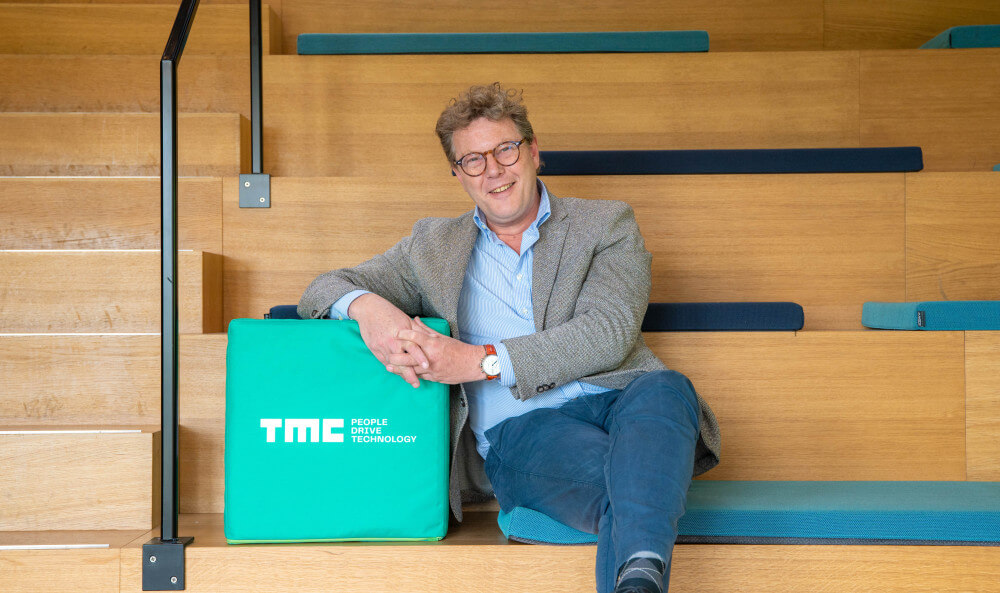
Why start-ups should prioritise Intellectual Property on their corporate agenda
Start-ups, which need to be fast and agile for success, do not always have intellectual property rights (IP) and patents high on their agenda. Many start-ups are not fully aware of the importance of IP, fear high costs or consider it an unnecessary step in the early stages of their development. Whereas right now, partly due to the rise of AI, patent protection is a valuable investment. IP consultant Adonis Reyes of TMC argues for more attention to patents among start-ups and explains how that has led to great successes at start-up Spectricity.
Reading time: min.Barriers
The first barrier for most start-ups is doubt about whether the idea, product or piece of technology they have is indeed an invention and hence qualifies for a patent. How unique is our intellectual property? What parts are already patented and how easily can our product be copied? Fair is fair, filing, maintaining and defending a patent is not cheap and quite complex. Costs include not only the patent costs themselves, but often expenses for outside (legal) counsel and possibly internal FTEs. For a start-up company with limited resources, these expenses can seem daunting. Yet these costs are often well worth it. This is why.
Benefits
- Protection: first, there is the protective element of the unique ideas or technology. Those who have gold in their hands would be wise to defend that gold for long-term gain. Due to the limited financial resources of start-ups, when the product is introduced to the market, chances are that there are large privateers on the coast who can scale up faster. This could result in an acquisition, where a big-tech company buys up the start-up and its IP, or simply be cutthroat competition, which prevents the start-up from surviving. Moreover, patent-protected technology gives investors and partners additional security.
- Knowledge source: a patent also acts as a valuable source of knowledge about a company's unique selling point (USP). Is the idea, technology or product indeed so unique that it is patentable? If not, the start-up also finds out invaluable information on why, what competition the company can expect and what its chances of survival are. Feedback from the Rijksdienst van Ondernemend Nederland - the issuer of patents in the Netherlands - or EPO - the European variant - are valuable sources of knowledge, regardless of whether the patent is granted.
- Higher valuation: speaking of value, start-ups with patents are often worth more. This makes start-ups more attractive to potential investors who value intellectual property as an important asset.
Real use case: Spectricity
Take Belgian start-up Spectricity, which we as TMC have been helping with the patent process since 2020. Spectricity developed the first hyperspectral camera. In layman's terms: a camera that perceives much more than the human eye and can thus, for example, detect plant diseases and improve the development of cosmetics. The Spectricity cameras can be integrated into smartphones and other devices, such as factory, infrastructure and agricultural devices. Knowing that the company had developed a unique technology and with the ambition to capture the potential billion-dollar market, the company invested its initial investments to enter the patent process. This, to become more attractive to other investors. The start-up then engaged TMC to guide the search for public funding, the development of patentable technology and the patent process. With success: in part by demonstrating that the technology was patentable, the start-up received 17 million euros in additional investment in 2021 and 2022.
Spectricity's intellectual property is now protected by a large and comprehensive collection of U.S. and international patents and pending applications for more than 75 inventions, along with licences to fundamental underlying technology. As IP portfolio manager, Adonis is responsible for the management and compliance of these patents, interfacing with patent issuing authorities and attorneys while maximising patent protection at the lowest possible cost.
The patents that Spectricity obtained have given the company many advantages. Not only a great competitive advantage by protecting their technology, but also business growth, increased trust from partners and investors, and accelerated introduction into the start-up's target markets.
Please consider
In short, although patent filing for start-ups can seem challenging and costly initially, the long-term benefits are often significant enough to justify the investment. It is a crucial step that may not be relevant to everyone, but can make the difference between success or failure for many. So, start-ups, don't immediately shy away from considering patenting your invention.

Reach out for opportunities, collaborations, or questions. We're here to connect.

![pressrelease_level21[1].png pressrelease_level21[1].png](https://www.themembercompany.com/cache/4462ce0d05b0dcb96e3bd48ef7106e67/pressrelease_level21[1].png)
